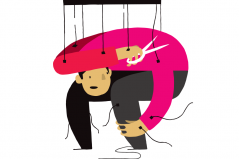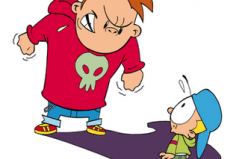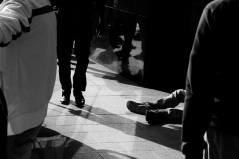Free will without metaphysics

keywords:
free will, folk concepts, morality, choice, blame
Free will without metaphysics
Despite the resurgence of interest in free will, there remains confusion and disagreement regarding free will’s role in social life, in particular, how people understand free will and whether free will guides blame and praise for others. In this blog post I argue that we need to pay closer attention to the folk concept of free will in order to resolve the confusion surrounding free will in everyday life. / more
Where are the genes for psychological traits?
Where are the genes for psychological traits?
In this blog post, I will discuss the methodologies available for identifying genetic influences on psychological traits, why it has proved so difficult to reliably identify specific genes, despite 20 years of effort, and what this tells us about the nature of these genetic influences. / more
Marrying smart or marrying instead of being smart? The goal conflict between MRS degrees and STEM degrees
keywords:
romantic relationships, gender, STEM
Marrying smart or marrying instead of being smart? The goal conflict between MRS degrees and STEM degrees
In this blog post, I review a number of studies that suggest that telling women to focus on their MRS degree (aka getting married) while in college can make women less interested in earning a STEM degree (Science, Technology, Engineering & Math). Why does this matter? Because the STEM fields are in desperate need of women. Luckily, research also suggests that women in STEM are more desirable than women may realize. / more
Sticks and stones and breaking bones: Social psychology and school aggression

keywords:
school, Aggression, bullying, peer group, social identity
Sticks and stones and breaking bones: Social psychology and school aggression
Bullying is a pervasive issue in schools today. This is one of two blog posts that will look at school aggression from the perspective of contemporary social psychology. In this post, I'll examine the role of groups in encouraging bullying. In my next post, I'll look at the perspective of the bullied victims. When it comes to bullying, it seems that groups can both be a part of the problem and the solution. / more
The year the journals changed
The year the journals changed
Where do all the studies come from? Behind every headline trumpeting a new finding in psychology, you can usually find an article in a peer-reviewed psychology journal. But how reliable are these findings? This is what many scientists have recently started to wonder. Because of this, journals in psychology are starting to insist on better reporting of research studies. In this first post of a two-part series, I will explain some of the standards that have typically been used to judge whether a study deserves publication or not. / more
Colorful Culture
keywords:
culture, color, socialization
Colorful Culture
As a world without colors would be extremely boring, we are luckily able to perceive various different colors that enrich our environment. Recently, Keiko Ishii and colleagues found that the colors we prefer and use for our paintings vary systematically across cultures. But that doesn’t mean that tomorrow’s multi-cultural world is becoming black-and-white or grey, rather there is hope that it will become even more colorful than it is today. In this post, we will illustrate how individuals and cultures engage in mutual construction and thus enhance variety. / more
Inequality: Minority disadvantage or White privilege? - And why it matters

keywords:
inequality, race, ethnicity, minority, privilege
Inequality: Minority disadvantage or White privilege? - And why it matters
In this blog post, I will discuss research showing how framing ethnic inequality in terms of White advantage versus minority disadvantage impacts how Whites and minorities understand inequality and thus how we should address inequality. / more
Bleeding-heart liberals and hard-hearted conservatives: Political dehumanization in the United States
Bleeding-heart liberals and hard-hearted conservatives: Political dehumanization in the United States
My previous blog post covered new research showing that liberals and conservatives are prejudiced against one another to an equal degree. In this post, I will review evidence that liberals’ and conservatives’ prejudices lead them to dehumanize their political opponents—that is, to see them as less than human. / more
Why Madonna was right: Music really does make the people come together
keywords:
music, synchrony, social bonding
Why Madonna was right: Music really does make the people come together
In August 2000, global superstar Madonna released the single “Music” from her soon to be hit album. Other than the brilliant lyrics “Do you like to Boogie woogie”, you might remember that one of the lines in the chorus was “Music makes the people come together.” In this post, I will discuss the social psychological research, which suggests that she was more right then even she must have thought. / more
Is banning bossy enough to enact real social change? Celebrity activism and the “Ban Bossy” campaign
keywords:
social influence, celebrity, leadership, activism, media
Is banning bossy enough to enact real social change? Celebrity activism and the “Ban Bossy” campaign
Recently celebrity activists such as Beyoncé, Jenifer Garner, and Sheryl Sandberg have thrown their weight behind a campaign to ban the term “bossy” to describe women (banbossy.com, #banbossy). The goal of the campaign is to encourage young women to step into leadership roles and to assert themselves in the classroom and in life. In this blog I highlight the social value of celebrity activism and I highlight important caveats of celebrity activism based on science. / more
